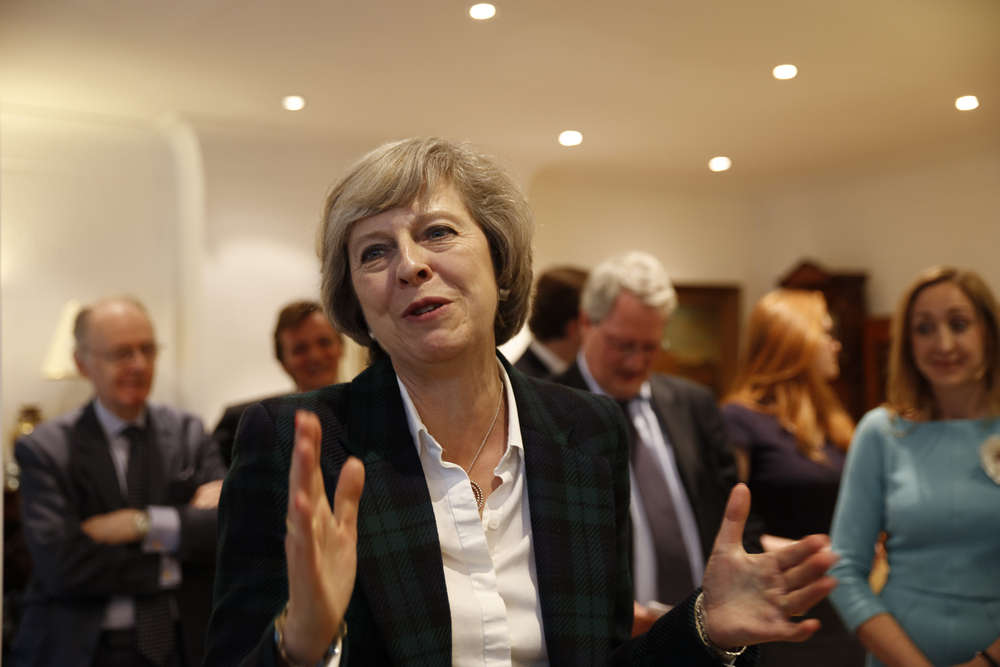Will A UK/US Trade Deal Really Benefit UK?

(By James Harte)
May Makes First Official Visit To Trump
With Theresa May’s visit to the US last week making her the first foreign leader to visit the new President since his inauguration, the prospect of a US/UK trade deal has moved into the spotlight. Trump has previously commented that the UK will be “front of queue” for a Free Trade Agreement and many will be hoping that the UK can strike a deal which will offset loss of access to the Single Market. However, a UK/US trade deal will not necessarily be a straight forward proposition, and the UK might not benefit as much as expected.
US/UK Trade Relationship Not Balance
Firstly, the trade relationship between the UK and the US is not a balanced one. The US accounts for 20% of UK exports whereas the UK only accounts for 5% of US exports. In light of this, the US will have a much stronger position when it comes to negotiating any trade deal.
Despite holding a sizeable overall trade deficit, the UK actually holds a trade surplus with the US, which equals roughly 2% of the gross domestic product. This stands in contrast to the UK’s large trade deficit with the EU which equals around 3% of GDP. The UK has a surplus with the US in both goods and services with the goods accounting for around 0.6% of GDP and services accounting for 1.5% of GDP. Clearly, US demand is an important contributor for the UK’s balance of payments.
Regarding trade deals, it is gross rather than net exports which matter. Market share is a vital factor in calculating the power of each party’s negotiating decision. The US is a second largest export market for the UK while the UK is less important for the US, at seventh place in terms of market share.
US Markets Matters More To UK
Analyzing bilateral trade by sector reveals a similar picture. The US is a much less services-orientated economy, accounting for only 12% of GDP compared with 25% of GDP for the UK. The US is also a much larger market with GDP almost 10 times the size of the UK’s. As such it isn’t surprising that the US is far more important to the UK across a range of sectors.
Exports of chemicals, rubber and plastic and petroleum products are the key export sectors for the UK, followed by business services, metals and metal products, transport equipment and travel. Total exports in these sectors account for over 2% of GDP. However, in the US, no single sector’s exports account for more than 0.1% of GDP to the UK.
Not Much Gain To be Made From Reduced Tariffs
Furthermore, tariffs between the UK and the US are already relatively minor. The UK stands to gain very little from a reduction in tariffs with the US. Any benefit would also be negated by the costs imposed on UK exporters by the EU.
Investment relationships between the US and UK are also unbalanced: UK investment in the US totals around 25% of GDP whereas US investment in the UK totals more than 150% of UK GDP. As such, the UK is much less important to the US as a trade partner in both GDP and sectoral terms. This isn’t a definite obstacle to a free trade deal; however, it does suggest that a UK FTA might not necessarily bet at the top of Trump’s political priorities.
Non-tariff barriers are the main barriers to UK exports. As the US-EU TTIP deal has now no longer a possibility, the removal of non-tariff barriers is no longer a positive sum scenario. It would require the UK to decide between the regulatory regimes of its two biggest trading partners.
If non-tariff barriers were relaxed, there could still me some small gain from a US-UK free trade deal, However, analysis of UK and US bilateral trade doesn’t suggest that the current trade barriers are producing negative effects although insurance and pensions is certainly one sector where the UK could improve its trade.
Political Concerns Weighing
There are also significant political concerns about the prospect of a free trade deal, the negative rhetoric used by the Trump administration about offshoring US companies. There is also evidence that shows that the UK has actually benefited from tax inversion deals from US corporations.
The factors above cast doubt on the ability of a UK/US trade deal to offset the terms of trade shock from the loss of access to the Single Market. A US/UK trade deal does not seem likely to fuel an appreciation of Sterling. The near-term direction of Sterling is likely to be dominated by discussions between the UK and the EU.
Disclaimer: Orbex LIMITED is a fully licensed and Regulated Cyprus Investment Firm (CIF) governed and supervised by the Cyprus Securities and Exchange Commission ...
more



There will be no US/UK deal until #Brexit is finished. Until then, UK will stick to EU rules. And Brexit is at least 2 years in the future. And we don't know if it's hard (full split) or soft (remaining in free trade zone) split. In other words, any speculation on US/UK deal is way premature.